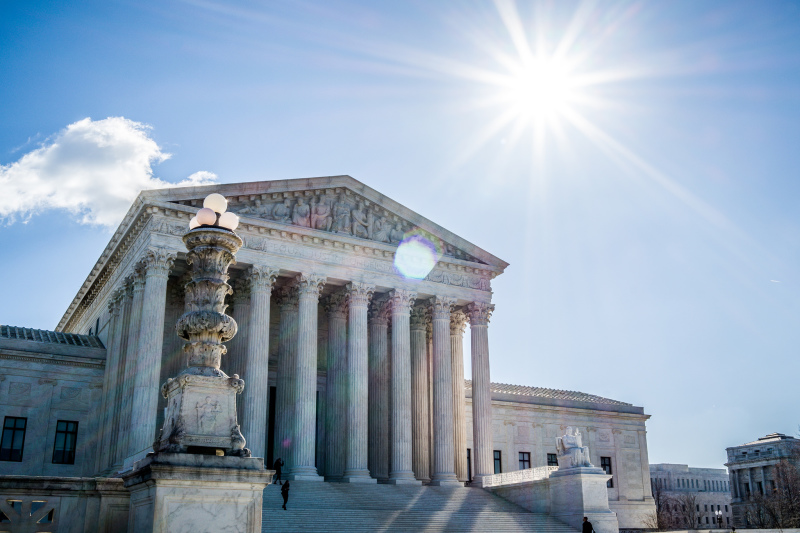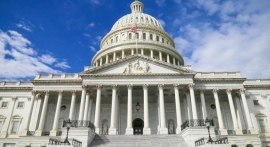
The U.S. Supreme Court heard oral arguments on Wednesday regarding whether a Lutheran church in Missouri should be allowed to participate in a state-funded program that uses recycled synthetic rubber to resurface playgrounds.
Trinity Lutheran Church, located in Columbia, MO, operates a preschool, and applied to the state's grant program to replace its playground's gravel with the softer and safer synthetic rubber.
However, though the church ranked fifth out of 44 applicants, it said, it was denied the grant due to a Missouri law that prohibits state money from being used "in aid of any church, sect, or denomination of religion."
"We aren't asking for special treatment," Annette Kiehne, director of Trinity's child learning center, said. "We are just asking to not be treated worse than everyone else. Whether you are a Jewish, Muslim, or Christian kid, or not religious at all, when you fall down on a playground, it hurts just as much at a religious preschool as it does at a non-religious one."
Many of the Supreme Court justices' questions and remarks implicated a favor leaning towards the church, including those from the liberal-leaning justices.
"Essentially this is a program open to everyone," Justice Elena Kagan told James Layton, a lawyer representing Missouri. "You're depriving one set of actors from being able to compete in the same way everybody else can compete, because of their religious identification."
Justice Samuel Alito said that barring the church from such programs could also prevent it from receiving funding to protect the child care center from violence or terrorist attacks.
Justice Stephen Breyer seemed to agree.
"If it [Missouri] does not permit a law that pays money out of the treasury for the health of the children in the church, school, or even going to church, how does it permit Missouri to deny money to the same place for helping children not fall in the playground, cut their knees, get tetanus, break a leg, etc?" Breyer asked. "What's the difference?"
Two liberal justices "” Justices Ruth Ginsburg and Sonia Sotomayor "” seemed most staunchly on the side of the state.
Ginsburg pointed to a 1947 case heard by the Supreme Court in which, she said, "This court said in no uncertain terms that what the framer didn't want was tax money imposed to pay for building or maintaining churches or church property. And doesn't that fit this case?"
David Cortman of Alliance Defending Freedom, representing Trinity, responded, "I think there's a difference between funding of religious activities and funding secular activities of a religious organization," saying that in the same case, the court also said religious individuals and organizations should have access to general government benefits.
But Justice Sotomayor noted that there were many cases in which states refused to fund churches, and that ruling against the church in this case wouldn't impede it from practicing its religion.
"I'm not sure it's a "free exercise' question," Justice Sonia Sotomayor said. "No one is asking the church to change its beliefs. The state is just saying it doesn't want to be involved in giving money to the church."
Meanwhile, Missouri Governor Eric Greitens actually reversed the law last week, and said that the state was wrong to deny such funding to religious organizations.
However, both parties involved in the case urged the Supreme Court to still rule, saying that Greitens' reversal could easily be again reversed by a future governor.
The Supreme Court is expected to rule on the case by June.

















